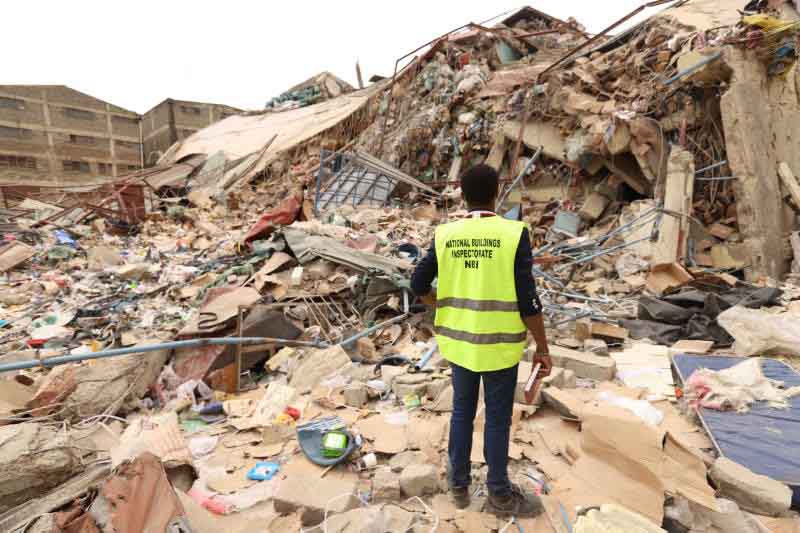×
The Standard e-Paper
Home To Bold Columnists

Engineer Elias Morang'a from NMS looks at the rubble of a nine-storey building in Kamukunji that collapsed in a picture taken on July 23, 2021. [Denish Ochieng, Standard]
Construction sector authorities have warned they will increase oversight on regulations following increased cases of collapsed buildings around the country.







